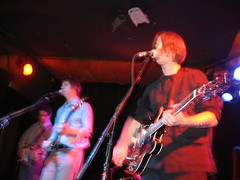The Age of Renaissance and the Rise of Modern Humanistic Education
THE AGE OF RENAISSANCE AND THE RISE OF MODERN HUMANISTIC EDUCATION
Introduction
The prevalent modern notion that a “renaissance period” followed Western Europe’s medieval age was first expressed by numerous Italian writers who lived between 1350c and 1550c.
Renaissance should be reserved to describe certain exciting trends in the thought, literature, and the arts that emerged in Italy from roughly 1350 to 1550 and then spread to northern Europe during the first half of the 16th century. This paper will limit itself to the understanding of a renaissance period to mean an epoch in intellectual and cultural history.
The word renaissance literally means rebirth, it is sometimes thought that after about 1350, certain Italians who were newly cognizant of Greek and roman cultural accomplishments initiated a classical cultural rebirth after a long period of death.
CONCEPT OF RENAISANCE IN THE REALM OF CULTURAL AND INTELLECTUAL HISTORY
In the realms of thought, literature, and the arts important distinguishing traits may certainly be found that make the concept of a renaissance meaningful for intellectual and cultural history:
1. The continuity rediscovery and the spread of classical learning
Medieval scholars knew many roman authors such as Virgil, Ovid, and Cicero but in the renaissance, the works of others such as Livy, Tacitus and Lucretius were rediscovered and made familiar. More importantly was the renaissance discovery of the literature of classical Greece.
In the 12th and 13th century, Greek scientific
